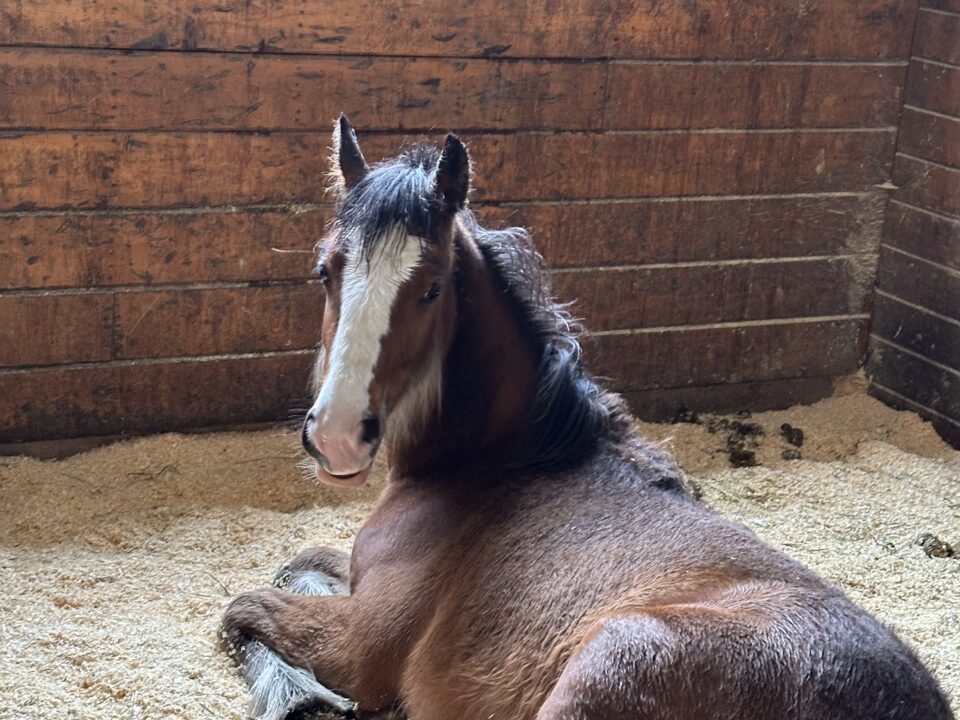Enjoying Your Dog’s Final Years
October 23rd, 2018
By Michael Aries Lopez, Guest Blogger

Most dogs can live to be at least 10 years old. Since dogs become such special members of the family, seeing your dog grow older is akin to seeing any long-term family member approach old age. It can be difficult to watch your once energetic and lovable friend slow down, but you and your dog can have vital and rewarding final years together despite the limitations that come with aging.
It’s not perfectly clear when a dog has reached his or her older years, but size is often used to gauge a dog’s lifespan. A small to a medium dog (less than 45 lbs) can be considered “old” at seven years, while a larger dog (more than 50 lbs), may reach senior status at six years. While the world record for a dog’s age is 29 years, the vast majority do not live past 15. Here are some tips for maximizing your dog’s “golden years” through a healthy lifestyle and positive approach to aging.
Be on the lookout for health problems
One of the most important things you can do to ensure your pet’s peaceful transition into the golden years is to schedule regular veterinary appointments to monitor the health of your dog. As with any senior animal, the chances of having health issues increase drastically the older one gets. Common conditions include but are not limited to arthritis, cancer, diabetes, loss of hearing and sight, heart disease, kidney disease and dental disease.
Depending on the dog’s breed, he or she might be at an increased risk for certain kinds of diseases, so it’s a good idea to have a veterinarian who either specializes in your dog’s specific breed or is well-informed of the unique health conditions your dog may face. This awareness can prevent or treat pains and discomforts that you might not have known were occurring from simply observing your dog’s behavior.
Activities you can do with your senior dog
Even though your dog might be older and not able to do many of the activities that he or she once could, this doesn’t mean that his or her drive for adventure and discovery has gone. You may even find that your dog’s motivation to exercise is stronger than ever!
Exercise in old age continues to be very important because it helps prevent the tendency of older dogs to put on excess weight, which could damage their now weaker bones. It also will help to relieve and reduce boredom and depressive symptoms. For walks during the cold winter, you can keep your dog warm with a coat or vest, depending on your dog’s comfort.
Your dog will greatly benefit from a regular exercise routine. This may involve a calm walk through the neighborhood or a slow-paced game of fetch where you wait a while before throwing a toy and take care not to throw the toy too far.
Don’t forget the importance of mental activities! Dogs are natural-born hunters and need mental stimulation in combination with physical stimulation to keep healthy. There are many easy ways you can enrich your dog’s life. For example, by providing different textures of chew toys to gnaw on, you not only help give your dog something to focus on, but you also provide him or her with a toy that simultaneously helps keep teeth clean. If your dog safely enjoys dog parks, this is a great way to provide both physical and mental exercise. For a dog who is friendly with other dogs, socializing is a wonderful cognitive enhancement.
Feeding and caring for your senior dog
The nutritional needs as your dog reaches his or her older years are different than that of younger dogs. Because dogs have slower metabolisms as they age, they are more likely to gain and hold onto weight. Your dog’s veterinarian might recommend switching to a senior brand that is high in protein and low in calories to help manage your dog’s weight. Some brands also have added vitamins and nutrients to help keep bones, joints and fur healthy. Be sure to talk to your dog’s veterinarian before changing his or her dog food.
Dogs are more likely to have stiff joints as they age, especially in the winter. Therefore, it’s important to keep dogs warm and comfortable by keeping them indoors as often as possible during the winter time. It can also be beneficial to invest in raised feeding platforms, gentle steps to help them avoid jumping and orthopedic beds to help them sleep comfortably.
Relax and stay present
The thought of losing your best friend can affect your peace of mind as your dog ages. That’s why it is important to live in the present moment. Showering your dog with affection can go a long way in making sure he or she is happy amidst any discomfort through the aging process.
By devoting your time to caring for and loving your dog as he or she ages, you will continue to nurture the bond you two have created over the years. This bond is one that you’ll hold close to your heart long after your beloved pet moves on.
______
 Michael is a passionate writer and avid dog-lover. He is a proud dad to two beagles and a golden retriever, and he treasures playtime with his furry best friends. Michael specializes in dog health, and worked as a volunteer at an animal shelter for two years before becoming a regular content creator for PawLabs.
Michael is a passionate writer and avid dog-lover. He is a proud dad to two beagles and a golden retriever, and he treasures playtime with his furry best friends. Michael specializes in dog health, and worked as a volunteer at an animal shelter for two years before becoming a regular content creator for PawLabs.



